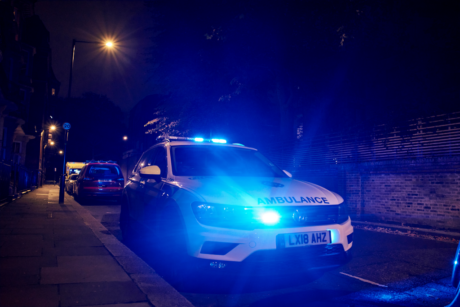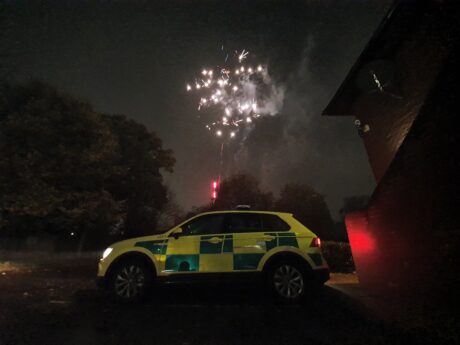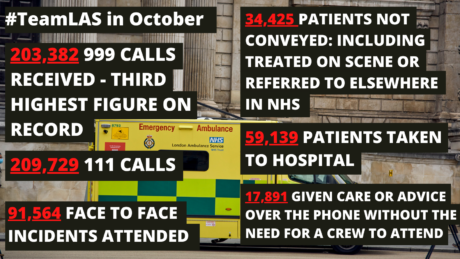Our message to Londoners ahead of busy weekend as we reveal October was our third busiest month on record
October was London Ambulance Service’s third busiest month on record in terms of 999 calls received and we are asking Londoners to help us to help them by using our services wisely as we approach a busy weekend. 
Bonfire Night weekends can traditionally see us face additional demand and pressures and we will have additional crews available to respond.
But we’re asking Londoners celebrating Bonfire Night and Diwali to do so safely and to remember that 999 is for serious medical emergencies.
This year we approach our busiest time – winter- while already extremely busy and having seen high demand for several months. Since the spring, daily 999 call volumes have routinely been between 6,000 and 7,000 – and on occasions even higher.
Before, a ‘busy’ day would be receiving around 5,500 calls.
July 2021 was our second busiest month for 999 calls, second only to March 2020 at the start of the COVID-19 pandemic.
September and August 2021 were the fifth and sixth busiest months on record.
Brian Jordan, a London Ambulance Service Director of Operations said:
“As the figures from October show, we continue to see high demand – but are doing all we can to ensure Londoners who need us get our help.
“The figures demonstrate just how important it is that 999 is only used in serious medical emergencies: so we can speak to and treat the most critically ill and injured patients as quickly as we can.
“Bonfire Night weekends often see us face additional demand: you can help us help you by going to NHS111 online first if you need medical help fast, but it’s not an emergency.”
Where to get the right help for your needs
Unfortunately, when we’re very busy, if you call 999 but it’s not a life-threatening emergency, you will be waiting longer for an ambulance as we have to make sure we speak to and treat the most seriously ill or injured patients.
For urgent medical help when it’s not an emergency, please go to NHS111 online first. 
If your medical concern is urgent – but you don’t need an emergency ambulance – and you use the 111 service, you’ll get the support you need.
You will also be helping us to ensure we are able to speak to and treat the most seriously ill and injured patients as quickly as possible.
This should also be your first port of call if you’re unsure what to do.
Don’t forget GPs and pharmacies can also help. Speak to a pharmacist for advice on medicines or common problems like coughs, colds and rashes.
Not sure where your nearest health services are? Visit www.nhs.uk.
Staying safe this Bonfire Night and Diwali
Please think twice about using fireworks at home as they are dangerous and cause injuries if used incorrectly.
We strongly recommend that instead of setting off fireworks at home you attend a professional display.
Take care with sparklers, as they can get five times hotter than cooking oil.
If you are meeting friends or family on Bonfire Night or to celebrate Diwali it’s safest to meet outdoors as the risk of catching or passing on COVID-19 is higher in crowded and enclosed spaces.
If you are meeting indoors, make sure you let fresh air in and keep the room as ventilated as possible.
October in numbers

- 203,382 999 calls received – third highest figure on record
- 209,729 111 calls
- 91,564 face to face incidents attended
- 34,425 patients not conveyed: including treated on scene or referred to elsewhere in NHS
- 59,139 patients taken to hospital
- 17,891 given care or advice over the phone without the need for a crew to attend

Follow us on social media: